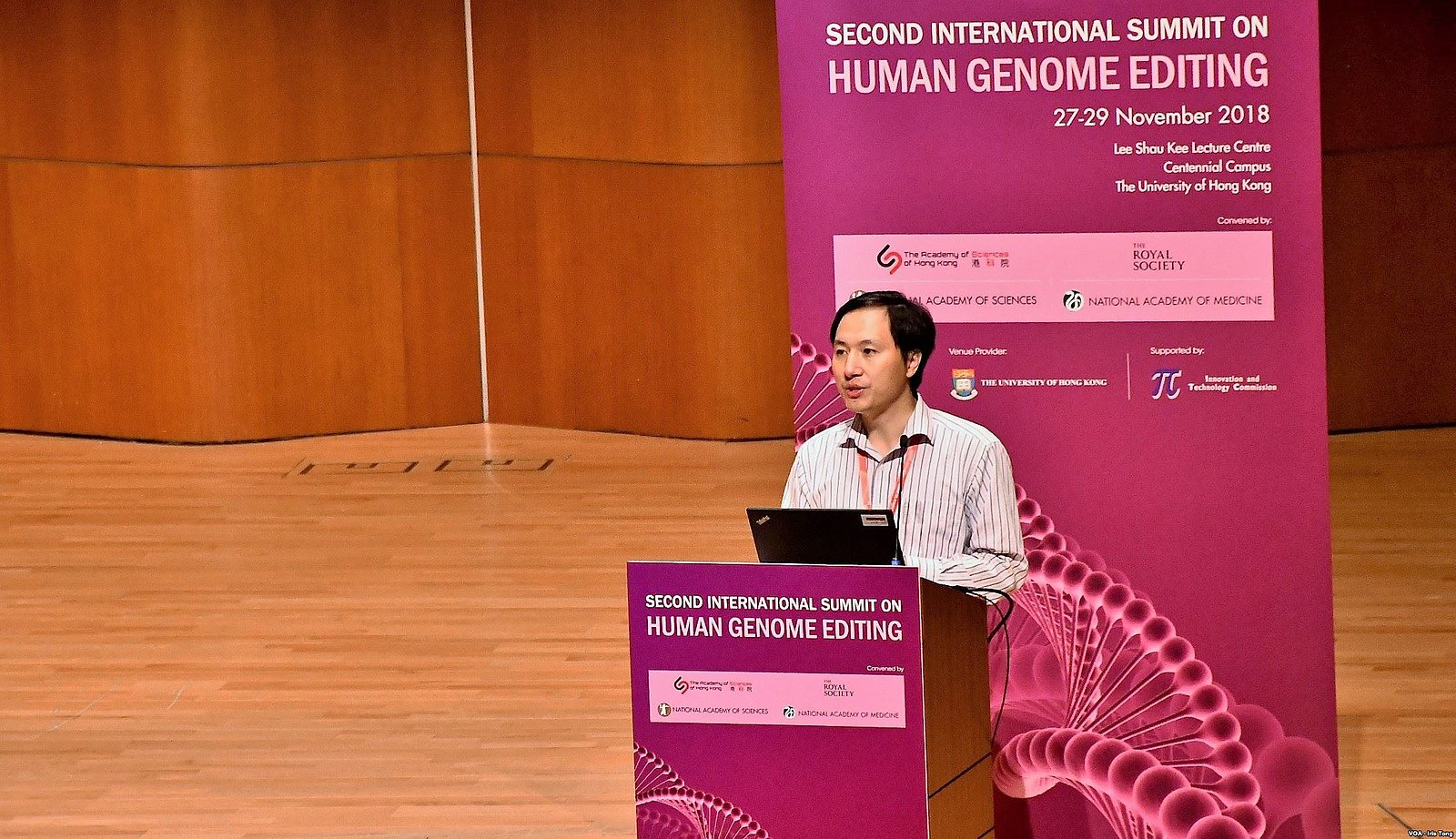On Wednesday, He Jiankui — a former postdoctoral fellow at Stanford who claims to have created the world’s first genetically edited babies — was spotted for the first time since sparking international outcry and debate with his initial announcement of the experiments on Nov. 28.
The New York Times reported on Friday that He is under guard by a dozen unidentified men in a guesthouse on China’s Southern University of Science and Technology’s (SUSTech) Shenzhen campus, where he was formerly employed as a professor in the biology department. The Times photographed He pacing a balcony of the guesthouse that has been “fenced off by metal wiring.”
At the International Genome Editing Summit (IGES) in Hong Kong on Nov. 28, He claimed to have conducted experiments in genetic manipulation at the embryonic stage, leading him to witness the birth of two gene-edited babies. He’s work was met with immediate controversy; critics accused him of ethical misconduct, as well as a lack of transparency and peer review.
Additionally, in the months before He began his work on gene-editing babies, he had met with several Stanford professors and researchers — including Stanford Medical School professors William Hurlbut and Matthew Porteus — who discouraged him from pursuing his project due to ethical concerns, The Daily reported in early December.
Despite such criticism, He continued his experiments, defending his actions as beneficial. At IGES, he claimed to have made the human embryos genetically resistant to HIV, preventing the two gene-edited babies from inheriting HIV from their parents.
“I truly believe that, not only for this case but for millions of children, they need this protection since an HIV vaccine is not available,” He said. “For this case I feel proud.”
Following the summit, He was reported missing. Sources initially speculated that Chinese authorities placed He under house arrest at SUSTech, but a university spokesperson dismissed claims that He was detained.
Yet, the recent sighting of He, the dozen unidentified guards outside his guesthouse and the Chinese authorities’ continued investigation of his work seem to indicate that He and his family have been put under a form of house arrest, sources speculate.
“When we visited the Southern University of Science and Technology was hosting a conference and visiting experts were checking in unaware Dr. He was being held a few floors above,” tweeted Times’ reporter Paul Mozur. “At least 12 plainclothes guards live on the floor with him and prevented us from getting close.”
However, the guards’ affiliation — whether it be with the Chinese government, the police, the university, or another organization — is still unknown. According to The Times, SUSTech and Shenzhen police remain tight-lipped on the issue, along with China’s domestic media outlets, who have avoided reporting on He Jiankui in compliance with “a directive from the propaganda department.”
SUSTech staff were also notified by university administrators on Nov. 29 that they were not to give interviews or statements to any news outlets. Although SUSTech distanced itself from any involvement in He’s work, denouncing his experiments in a statement on its website, Mozur posted photos of He’s name still on signs “everywhere,” including a board for the SUSTech biology department faculty.
He’s research activities are still suspended by Chinese authorities, with the Ministry of Science and Technology calling his work with genetically edited babies a violation of Chinese law. China’s Ministry of Education have asked universities and university-affiliated hospitals to conduct reviews of gene research programs.
Contact Elena Shao at eshao98 ‘at’ stanford.edu.
